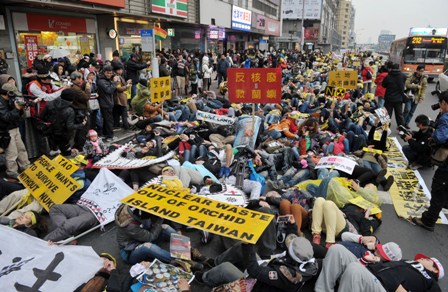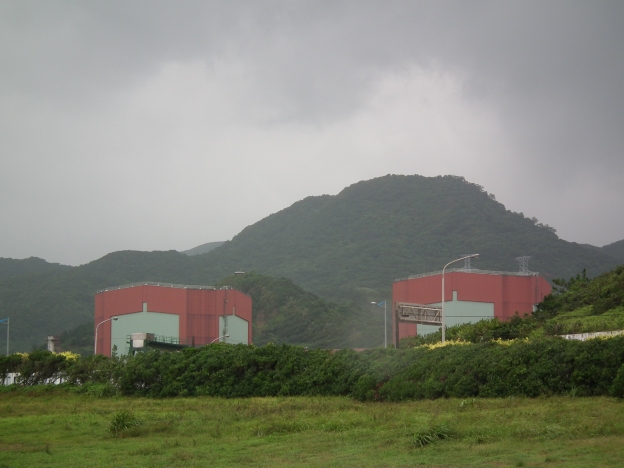Taiwanese voters have rejected the island’s policy to phase out nuclear energy. In a referendum held on Saturday, 59% of voters supported overturning legislation enacted last year that would end all use of nuclear power by 2025.
Taiwan’s three nuclear reactors provided 8.3% of its electricity in 2017, according to the Ministry of Economic Affairs. The Democratic Progressive Party (DPP), which controls both the presidency and the legislature, had hoped to take nuclear power out of the mix by increasing the share of renewable sources in power generation to 20% by 2025; 50% would come from liquefied natural gas (LNG) and 30% from coal. But pro-nuclear advocates gathered more than 290,000 valid signatures in favor of a referendum on removing the nuclear phaseout clause from the books—enough for the referendum to proceed. Science spoke with Min Lee, a nuclear engineering professor at National Tsing Hua University in Hsinchu, Taiwan, and one of the referendum’s co-organizers.
Q: Why do you think Taiwan cannot make it without nuclear power?
A: The government says we are going to have 20% renewable energy. I don’t think we can make it, because Taiwan is a highly populated island, and for renewable energy you need large pieces of land. But even if we succeed, what are you going to use for the remaining 80%? Coal is considered a highly polluted fuel; people don’t like coal at all. That leaves only LNG. But Taiwan is an island, so we have to rely on ships, LNG terminals, and a big tank to store LNG. It’s not safe. If anything happened, we could easily be left without gas and we could face the problem of power shortages. And the price of LNG is not stable—it fluctuates a lot—so the price of electricity is not going to be stable.
Q: Hundreds of academics wrote a letter urging the public to vote “no” on your referendum. They argued nuclear power is unsafe and there is no long-term solution to nuclear waste. How would you respond?
A: I think nuclear power is safe, even after the Three Mile Island accident, Chernobyl, and Fukushima. The Three Mile Island accident happened 40 years ago [in Pennsylvania]; the nuclear industry really made a lot of changes since then. The Chernobyl reactor [in what is now Ukraine] used a different design than the light-water reactor designs we use in Taiwan; what happened in Chernobyl will not happen here. As to the nuclear power plant in Fukushima, [Japan,] it was not damaged by the earthquake, it was the tsunami. The Tokyo Electric Power Company really did not pay enough attention to plant safety related to the tsunami. And we don’t think nuclear power plants in Taiwan could be hit by a tsunami of the same magnitude because the height of a tsunami is maximal if seismic faults are parallel to the coast, as they were in Fukushima. Faults near Taiwan are instead at an angle to the coast.
Talking about nuclear waste, there is low-level and high-level waste. We really do not have much high-level nuclear waste, we only have spent fuel, but it is all on-site. We can have interim storage for spent fuel in a dry cask. So, it’s not a problem either.
Excerpts from Andrew Silver , Meet the engineering professor who got Taiwanese voters to support nuclear power, Sience Magazine, Nov. 27, 2018




